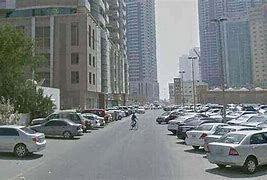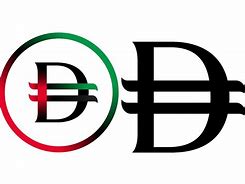Dubai’s Roads and Transport Authority (RTA) announced today (Sunday) the opening of a vital three-lane bridge linking Sheikh Rashid Road to Infinity Bridge. This milestone marks a significant achievement in Phase 4 of Al Shindagha Corridor Improvement Project, which spans Sheikh Rashid Road from Sheikh Khalifa bin Zayed Street intersection to Falcon Interchange on Al Mina Street, covering a total length of 4.8 km. The project also includes the construction of three bridges with a combined length of 3.1 km, capable of accommodating19,400 vehicles per hour across all lanes.
The Roads and Transport Authority (RTA) announced that 71% of the project has been completed. A second bridge on Sheikh Rashid Road, linking Al Mina Intersection to Sheikh Rashid Road intersection with Sheikh Khalifa bin Zayed Street, is set to open in the first half of January.
His Excellency Mattar Al Tayer, Director General, Chairman of the Board of Executive Directors of the RTA, commented on the achievement of this milestone in the project timeline saying: “Al Shindagha Corridor Improvement Project is being implemented under the directives of His Highness Sheikh Mohammed bin Rashid Al Maktoum, Vice President, Prime Minister of the UAE, Ruler of Dubai, and is closely monitored by His Highness Sheikh Hamdan bin Mohammed bin Rashid Al Maktoum, Crown Prince of Dubai, Deputy Prime Minister, Minister of Defence, Chairman of the Executive Council of Dubai.”
“The project aims to keep pace with the ongoing development in the area along the corridor, addressing the requirements of urban and population growth. The new bridge enhances traffic flow from Sheikh Rashid Road to Infinity Bridge, starting at Sheikh Rashid Road intersection with Sheikh Khalifa bin Zayed Street, continuing through to the intersection of Sheikh Sabah Al Ahmad Al Jaber Al Sabah Street with Al Mina Street, and onward to Infinity Bridge,” explained Al Tayer.
Phase Four
“71% of Phase Four has been completed, and a second bridge under this phase is scheduled to open in the first half of January. This phase includes the construction of three bridges designed to enhance traffic flow across key routes. The first bridge, measuring 1,335 metres in length with three lanes in each direction, enhances traffic flow between Sheikh Rashid Road and Falcon Interchange, with a capacity of 10,800 vehicles per hour in both directions. The second bridge spans 780 metres with three lanes, serving traffic from Falcon Interchange towards Al Wasl Road, with a capacity of 5,400 vehicles per hour. The third bridge, 985 metres long with two lanes, facilitates traffic from Jumeirah Street to Al Mina Street heading towards Falcon Interchange, with a capacity of 3,200 vehicles per hour, Added Al Tayer.
“The project includes the development of 4.8 kilometres of roads, improvements to surface intersections on Jumeirah Street, Al Mina Street, and Sheikh Sabah Al Ahmad Al Jaber Al Sabah Street, as well as the construction of two pedestrian bridges, one on Sheikh Rashid Road and the other on Al Mina Street. It also includes installation of street lighting, traffic systems, a rainwater drainage network, and an irrigation system.”
15 Intersections
He further added: “Al Shindagha Corridor Improvement Project is one of the largest initiatives currently undertaken by the RTA. covering Sheikh Rashid Road, Al Mina Street, Al Khaleej Street, and Cairo Street over a total length of 13 kilometres, the project involves the development of 15 intersections. Due to its extensive scale, the project has been divided into five phases.
“The corridor serves Deira and Bur Dubai, as well as several major developmental projects, including Dubai Islands, Deira Waterfront, Dubai Maritime City, and Port Rashid. The project is estimated to benefit a population of one million residents.
“The corridor is designed to ensure free-flowing traffic along Al Shindagha Corridor, enhance road capacity, and significantly reduce travel time from 104 minutes to just 16 minutes by 2030. Additionally, the project aims to elevate traffic safety standards. The savings from reduced travel times are projected to reach AED 45 billion over the next 20 years.”
Completed Phases
Reflecting on the completed phases of the project, Al Tayer said: “RTA has developed several intersections along Al Shindagha Corridor. These include the upgrades to Sheikh Rashid Road and Oud Metha Street (Wafi Intersection) as well as the intersection of Sheikh Rashid Road and Sheikh Khalifa bin Zayed Street. The works involved constructing two bridges on Sheikh Khalifa bin Zayed Street with two lanes in each direction, a single-lane bridge from Zabeel Street to Sheikh Rashid Road, and a tunnel on Sheikh Rashid Road heading towards the intersection of Sheikh Rashid Road and Sheikh Sabah Al Ahmad Al Jaber Al Sabah Street, featuring four lanes in each direction.
“Additionally, five bridges have been completed to provide ramped access to and from Dubai Islands at the intersection of Al Khaleej Street and Abu Baker Al Siddique Street. These bridges and ramps span a total length of 2,571 metres and have a combined capacity of 20,700 vehicles per hour.
“RTA opened a 570-metre-long bridge on Al Khaleej Street featuring three lanes in the direction of Bur Dubai, alongside a surface-level intersection connecting Al Khaleej Street with the Omar bin Al Khattab Street. This bridge ease traffic on the Al Khaleej Street coming from the intersection of Abu Baker Al Siddique Street as well as traffic from Dubai Islands towards Al Shindagha Tunnel, with a capacity of 4,800 vehicles per hour.
“RTA completed Infinity Bridge, which spans 295 metres with six lanes in each direction, including a three-metre shared path for pedestrians and cyclists. The bridge features a 42-metre-high arch designed in the shape of the infinity symbol (∞), symbolising Dubai’s boundless ambitions. With its unique architectural design, the bridge stands as a global landmark and a unique symbol of Dubai.”
Falcon Interchange
RTA has also completed Falcon Interchange Improvement Project, which involved the construction of two bridges along Al Khaleej Street. The first bridge, spanning 750 metres long, serves northbound traffic, while the second bridge, measuring 1,075 metres long, accommodates southbound traffic. Both bridges feature six lanes in each direction and a combined capacity of 24,000 vehicles per hour.
The project also includes a single-lane bridge for right-turn traffic from Khalid bin Al Waleed Street to Al Khaleej Street, spanning 250 metres and accommodating up to 1,600 vehicles per hour. Additionally, a two-lane tunnel was constructed for left-turn traffic from Khalid bin Al Waleed Street to Al Mina Street, with a length of 500 metres and a capacity of 3,200 vehicles per hour.
A surface-level signalised intersection was also implemented to connect Al Khaleej Street with both Al Ghubaiba Street and Khalid bin Al Waleed Street, significantly improving traffic flow across the area.































